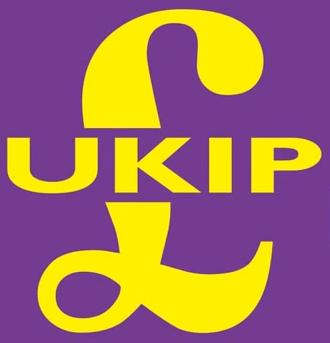The latest polling in the United Kingdom has shown a surge by the UK Independence Party (UKIP) to take the lead in the upcoming European parliamentary elections.
UKIP leads with 31 percent support, the Labour Party with 28 percent, the Conservative Party with 19 percent, and the Liberal Democrats with 9 percent. The election is less than a month away, scheduled for May 22.
The result builds on UKIP’s resounding success in the 2013 county council elections, when the party came in third place in the popular vote and won 140 seats for the first time. Labour had 29 percent, the Conservative Tories 25 percent, UKIP 23 percent, and the Liberal Democrats 14 percent.
Comparing the two results, it appears that nationally UKIP is the direct beneficiary of collapsing support for both the Conservative and Liberal Democrat parties. Why?
UKIP is calling for British withdrawal from the European Union (EU), and has surged under Nigel Farage’s leadership since 2010, when the European sovereign debt crisis began. That, coupled with high unemployment and the economy still sagging after the financial crisis, and the political establishment in London is having a hard time accounting for its own failures.
In the meantime, Farage has an easy answer. An April 23 campaign video by the party highlights excessive EU regulations on UK businesses, unfavorable trade agreements, lax immigration policies, European courts overruling British ones, and onerous green taxes on energy.
To placate UKIP voters, Conservative party leader and Prime Minister David Cameron has promised a referendum on the question on EU membership — but only if the Tories are reelected in 2015.
But with UKIP’s fortunes rising so fast, they may not get that opportunity in 2015. All along, Farage’s strategy has aimed at the ultimate goal of winning seats in Parliament. If UKIP eats up enough of the Conservatives’ votes in May, Farage will have real momentum at his side headed into 2015 while the Tories attempt to defend an unpopular incumbent whose opposition to the EU is simply for appearances sake.
Here in the U.S., we’re familiar with such feigned opposition to Obamacare, Environmental Protection Agency (EPA) regulations, out of control debt, and destructive monetary policies that almost nobody on Capitol Hill has any intention of doing a thing about.
Republican Party leaders nominally state they are against these drains on U.S. prosperity, yet when the opportunity to use the power of the purse arises via the debt ceiling or continuing resolution votes — they consistently balk at taking real action.
It is all evidence of a party without any identity. That has no clear vision for governing in accordance with the principles it professes to believe in.
In the British parliamentary system, this can give rise to third parties that directly challenge the political establishment in London for primacy.
While this could be a window into the GOP’s political future here in the states, it likely would take on a different form. Instead of a third party challenge, dissatisfied Republican voters may perhaps demand sweeping changes in congressional leadership in 2015, and help foster a robust GOP presidential primary field in 2016.
Either way, Republican leaders might do well to heed the warning of former Conservative Party chairman and Margaret Thatcher cabinet minister Norman Tebbit: “If you kick your core voters hard enough, Mr. Cameron, they might kick back.”
Alas, Cameron did not listen, and UKIP continues to rise. And if the same thing happens here in the U.S., Republicans will not have anybody to blame but themselves.
Robert Romano is senior editor of Americans for Limited Government.







